MSc molecular Biosciences
You love reading and cannot get enough of catchy scientific papers? Finishing an experiment in the lab is what excites you the most at the end of the day? You are familiar with the hallmarks of cancer postulated by Hanahan and Weinberg and want to find out more about the intertwined mechanisms underlying one of the most complex diseases of humankind? Then the Major in Cancer Biology is your go to program to round off your master studies in Molecular Biosciences!
This program not only offers lecture series held by well-known researchers from the DKFZ but you will also have the chance to get hands-on training in practicals to take your lab skills and research mindset to a next level – preparing for an aspiring research career in academia or industry. Moreover, prior to your master thesis you will have a whole free semester dedicated to internships organized by yourself. You will therefore have the option to go abroad and explore the world before returning to the lovely city of Heidelberg to finish your master studies.
If you are unsure if this major is a good fit and want further information
- on the detailed study program:
visit DKFZ: Major Cancer Biology – Study Program to find out more
- on the current and past Cancer Biology students, their interests and educational backgrounds visit:
DKFZ: Major Cancer Biology – Students to find out more
FAQ:
- Is there a certain grade I have to reach to be invited to an interview?
- The submission is based on grade, research experience and motivation
- Are there any aspects you would recommend to implement into the motivational letter? Is there a page limit regarding the motivational letter?
- For questions regarding the application process and necessary documents see https://www.dkfz.de/en/major-cancer-biology/Admission/Admission.html
Especially: How to prepare your application documents for Major Cancer Biology
- For questions regarding the application process and necessary documents see https://www.dkfz.de/en/major-cancer-biology/Admission/Admission.html
- Am I allowed to apply, when I haven’t finished my bachelor yet?
- Yes, you can hand in you Bachelor certificate when you enrol at Heidelberg University in autumn
- What can I expect from the interview as part of the application process?
- The interview is conducted in English with usually two interviewers working at the DKFZ
- You need to give a short presentation about a research topic you worked on, followed by some questions on this work
- Additionally, you might get questions regarding your background and CV, motivation, and also some scientific cancer related questions
- Do I specifically need a cancer research related undergraduate degree?
- No, the current students have different backgrounds including biomedical sciences, biology, biotechnology, biochemistry etc. There is no need for it to be specifically focused on cancer research.
- How are the practicals and seminars organized?
- There are multiple courses to choose from. The students can hand in their preferences and luck decides when too many students want to do one course.
- The practicals cover different topics ranging from immunology to proteomics and genomics and give insight into lab work, but also bioinformatic analysis of the results
- The grades are based on written protocols and a journal club with paper presentations
- What can I expect from the lecture series in the 1st and 2nd semester?
- 1st semester
- Common lecture with all majors
- Catch up on basics, get insight into different research fields
- 2nd semester
- Cancer Major specific lectures
- Different lecturers from the DKFZ, allows insight into research groups
- Gives you a broad overview of central aspects of Cancer Biology with a dedicated part on immunology and virology
- Is it possible to attend any additional courses of other Majors in parallel?
- You will attend two minor lectures series as part of the Frontiers II module, where the different Majors are going to give an introduction in their field.
- You can attend more than the two necessary minor lectures, as long as they do not run in parallel. (True when the lectures were held online because of Covid, but this can change when lectures go back to be in person)
- Is it possible to work during the master programm (e.g. as a Hiwi)? Or is the study workload already enough?
- There are several students working in different Hiwi positions. The masters program is a full-time commitment, so the decision to take on extra workload needs to be assessed individually.
- What is the difference between the lab rotations “Biolab” and “Working in Bioscience”? Do I have to do them at the DKFZ or can I go abroad / do a rotation in the industry?
- The “Biolab” lab rotation has to be in a group at the DKFZ, while “Working in Bioscience” is not limited to labs at the DKFZ but you can do it in industry or go abroad
- The requirement is that you work on a project investigating a scientific question, wet-lab and dry-lab/ bioinformatics is possible); you have to write a report, similar to a master thesis. (So an internship in e.g. Pharma Marketing will not count- however many students spend a 3rd internship to explore things outside the lab!)
- Both lab rotations need to be at least 6 weeks, but it can be extended to up to 6 months
- Is there time pressure to finish the degree in 4 semesters? What happens if I want to do longer lab rotations?
- Lab rotations can be extended to up to 6 months and you can do more lab rotations / internships if you want
- Then you will start later with you master thesis
- What options do I have to go abroad during the program?
- Module “Working in Bioscience” can be done abroad
- Many Cancer Biology Students go to the US, Canada, UK
- Life Science for Health exchange program – study in Joint Master programmes of the three institutions: Karolinska Institute in Stockholm, Sweden; Heidelberg University Faculty of Biosciences and Leiden University Medical Centre, The Netherlands
- What are the common career-steps after finishing Cancer Biology in Heidelberg?
- PhD, Jobs as Scientist at various locations (Industry, Academia)
- 1st semester
And if something is still unclear and you have further questions don’t hesitate to Contact Us!
2nd year | Nick | n.hirschmueller@dkfz.de |  |
Barbara | b.betz@dkfz.de |  | |
Ferdinand | f.popp@dkfz.de | 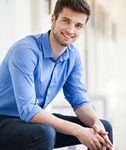 | |
1st year | Sarah | sarah.baiker@dkfz.de |  |
Lea | lea.vogt@dkfz.de |  | |
Maria-Luisa | maria-luisa.wiesinger@ dkfz.de |  |
Welcome to the Developmental and stem cell biology major!
Developmental biology studies the mechanisms and complex interactions leading from one cell to a multicellular organism. We are interested in the embryogenesis of animals and plants and their later growth and development as well as in the features of stem cells and the different mechanisms of regeneration. We work on questions like: How does each cell in an embryo know what to become? How do different cell types connect during embryogenesis? How are stem cell niches maintained? And many more fascinating topics.
This major is situated in the Centre of Organismal Studies (COS) where you can work with a huge variety of model organisms: Aiptasia, Arabidopsis thaliana, Brachypodium distachyon, Chironomus riparius, Drosophila, Hydra, Kalanchoë sp., medaka, mouse, Nematostella, Saccharomyces cerevisiae and many different cell culture lines. Also, many of our lecturers work with organoids. We also have lectures from the DKFZ, the EMBL (Platynereis dumerilii, Amphioxus, Nematostella), the KIT (zebrafish) and the Uniklinikum (chicken). A huge advantage of this program is that it is very laboratory-based. You can freely choose in which of the lecture´s laboratories you want to do your rotations and thus you can easily adapt the major to your interests. The complete program is held in English and about half of the students in each year are international students.
The goal of the Master program is to prepare you for working in science. Our major therefore focuses on providing sufficient knowledge of various aspects of developmental and stem cell biology, both in theory and practical applications. In the first year, through a series of lectures (Frontiers I + II, Focus I + II), you will be equipped with all the materials and fundamentals you need to qualify you for the various labs that will host you during practicals and rotations. First with a broad and then a more refined focus on topics important to stem cell and developmental biology. Through the seminar series, you will learn about the most important milestones of the field and the methods with which they were reached. You will get ample opportunities to practice the things you learn in seminars and lectures during one of your six (or more) lab rotations before your thesis. And because life as a scientist includes more than just lab work, but also peer review and applying for grants, you will get the opportunity to practice these skills among your peers during the seminar series.
FAQ:
- Where can I do my rotations?
In the first semester, the lecturers will assign you to two 3-week practicals where you’ll learn or refresh important basic methodologies. In the second semester, you can choose two 3-week practical courses from lecturers who are listed in the Major “Developmental and Stem Cell Biology” (DSCB). In the third semester, you can choose two 6-week practical courses from lecturers listed in the Major DSCB. One of the practicals in the third semester can be conducted with an external lecturer or institution.
Lecturer list
Detailed information
- Exchange programs
First of all, the lecturers really support the idea of going abroad for some practical experience and many students take the chance. You could do your external 6-week practical course (third semester) abroad or even your Master thesis. You just have to make sure that you find an internal lecturer who will grade your lab report/presentation.
- LSH (Life/Leiden – Science/Stockholm – Health/Heidelberg): Exchange program between Karolinska Institute (Stockholm), Heidelberg University (Biosciences) and Leiden University Medical Centre (Netherlands). Deadline for the application is January 30th.
Detailed information
- LSH (Life/Leiden – Science/Stockholm – Health/Heidelberg): Exchange program between Karolinska Institute (Stockholm), Heidelberg University (Biosciences) and Leiden University Medical Centre (Netherlands). Deadline for the application is January 30th.
- Erasmus: You need to apply with an application form, a letter of motivation and your Transcript of Records until January 20th. You can choose from a large list of partner universities.
(https://www.bio.uni-heidelberg.de/fakultaetbio/de/Erasmus_partneruni)
- Erasmus: You need to apply with an application form, a letter of motivation and your Transcript of Records until January 20th. You can choose from a large list of partner universities.
Detailed information:
https://www.bio.uni-heidelberg.de/fakultaetbio/de/Exchange_outgoing
https://www.uni-heidelberg.de/de/international/erasmus
Testimonials (German):
https://www.bio.uni-heidelberg.de/fakultaetbio/de/erasmusberichte
- Erasmus + and DAAD: Via the database of the “Deutschen Akademischen Austauschdienstes” (DAAD) you can find various scholarships for an international stay during your studies.
Detailed information on DAAD and more links to international founding.
DAAD Homepage
- Erasmus + University of Heidelberg (partner countries and testimonials):
Erasmus + also has a program called “ERASMUS Placement” which supports practical courses abroad. The program is administered by DAAD. Prerequisite for this program is that you have to need to organize the practical course yourself. The period ranges from 2 – 12 months. You can apply at the latest one month before the practical course starts.
Erasmus Placement University of Heidelberg
Apply for Erasmus Placement
Contact
Do you have questions? Feel welcome to contact students of DSCB!
2nd year | Jonathan | jonathan.schmidt@stud.uni-heidelberg.de | |
Gasser | Gasser.Elmissiery@stud.uni-heidelberg.de |  | |
1st year | Annika | A.Ohl@stud.uni-heidelberg.de |  |
Lena | l.bognar@stud.uni-heidelberg.de |  | |
Jonas | hr253@stud.uni-heidelberg.de | 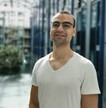 |
Following the more general bachelor’s program ‘Biowissenschaften’, Heidelberg University offers students wishing to pursue a Master the possibility to choose from 7 different specialised fields of study including the Major ‘Infectious Diseases’. This major focuses on Medical Microbiology and Hygiene, Molecular Virology, Virology, Integrative Virology and Parasitology and is represented by 37 different research groups (see Study Guide 2020). Main research topics of the Department include HIV/Aids, malaria, viral hepatitis and the interaction between pathogens and their host. In addition to the Department, there are cooperations with numerous institutions from Heidelberg University, the European Laboratory for Molecular Biology (EMBL), the German Cancer Research Center (DKFZ) and the Max-Planck- Institute for Medical Research, as well as with international partners.
FAQ:
- How much knowledge on infectious diseases do I need before starting the program?
Having heard some lectures on immunology, virology etc. will definitely not be a disadvantage but it is not a prerequisite. If you are curious and interested in infectious diseases, this Major is right for you.
- How is the Major structured?
You can find the overall structure of our Major as well as the detailed schedule for all modules of the first year on the Major homepage.
- What is important to know before the interview?
In general, the admission committee just wants to get to know you and see if Infectious Diseases is the right fit for you. Nevertheless, you should be able to describe your previous research experience (especially your Bachelor thesis) and have some basic knowledge on molecular biology.
Contact
If you have further questions, feel free to contact current students of the InfDis Major:
2nd year | Sara | kraker@stud.uni-heidelberg.de | |
Paulina | schad@stud.uni-heidelberg.de | ||
1st year | Saruul | jargalsaikhan@stud.uni-heidelberg.de | |
Niklas | stockburger@stud.uni-heidelberg.de |  |
Did you ever wonder what makes plants such successful multicellular organisms on Earth? How have plants managed to survive without possessing the ability to move or walk? How can they adapt to a constantly changing environment? How did we manage to domesticate crop plants? These are only a few examples of all the questions that came to our mind. If you are, like us, interested in finding the answers to those questions, then the “Molecular and Applied Plant Sciences” Major – or MAPS as we like to call it – of the “Molecular Biosciences” Master Program might be a good choice for you!
IMPORTANT POINTS
- We are a relatively small Major (approx. 8-11 people per year), leading to a better one-to-one supervision for certain subjects and to a closer relationship between professors and students. In addition, the small group allows for a more personal relationship between all the MAPS students, making it easier to get to know everyone and easier for us to help each other during the beginning but also during later stages of the program.
- The Master’s programme aims to prepare you in the best possible way for a career in science. Besides a lot of practical lab work, you will also learn how to design research projects, how to write a peer review or the fundamentals in data sciences.
- The majority of the resident groups and, accordingly, the greater part of the programme is focused on basic molecular research. Nevertheless, this major gives you also the opportunity to gain broader insights into areas between molecular and applied plant biology, both in one of the resident groups or in the industry. Additionally, the university is connected to a large number of institutes around the world, which means that you can always find a research group for an internship in Germany or abroad that is working on a topic that might be of particular interest to you!
GENERAL OVERVIEW
1st semester
When starting the MAPS Master you will first learn about the principles of basic molecular techniques together with students from all other majors. This will give you the chance to come in contact with people from all the other Majors in the beginning of your studies. At the same time, you will learn how to apply different laboratory techniques through practical courses, gaining confidence in your abilities and knowledge by applying them to lab practicals, seminar talks and exercises. Every student in the MAPS Major attends the same practical course in the 1st semester, giving you the perfect chance to meet and work with everyone! Finally, attending lecture series organized by different Majors will give you an insight into different fields.
2nd semester
In the 2nd semester the lectures are Major-specific, mostly focusing on relevant and recent topics in plant research. Lab work consists of two so-called “lab rotations” (min. 3 weeks) which have to be organized individually. In other words, you are responsible for contacting different research groups and arranging your lab rotations according to your own interests, giving you complete freedom to gather experiences.
3rd semester
This is the time for people who are interested in traveling and seeing the world! The 3rd semester gives you the freedom to conduct one of the two lab rotations (min. 6 weeks) outside of the university, for example in the industry or in a university abroad. But of course if you want to stay at the university, there are plenty of research groups you can join!
4th semester
The final semester of your studies is focused on your Master Thesis which has to be conducted in a research group that is part of the university (with possible exceptions).
FAQ:
- My Bachelor course/Bachelor Thesis did not have a specific focus on plants, will that be a problem when applying for MAPS or during my studies?
Some background knowledge on plant systems can definitely be beneficial but is in no way a requirement for you to either apply for the Master or succeed in your studies. Knowledge of molecular biology and/or biotechnology and, most importantly, an interest in plant biology are more than enough!
—————————————————————————————————
As you can see, the master program is really diverse, giving you a lot of freedom to focus on the research area in which you are particularly interested in. This is also where the beauty of this Master lies; it will give you everything you need to know for any future job!
For further information, you can visit the website of the university.
Contact
If you still have some questions, do not hesitate to contact us. We would love to hear from you!
Katarina Erbstein | katarina.erbstein@stud.uni-heidelberg.de | 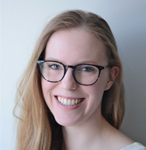 |
Panagiotis Boumpas | Boumpas@stud.uni-heidelberg.de |  |
Lucía Garstka | garstka@stud.uni-heidelberg.de | |
Magdalena Slawinska | ra248@stud.uni-heidelberg.de |
Molecular and Cellular Biology (MCB) is probably the Major with the broadest spectrum when it comes to topics or research focuses. If you are thinking about becoming part of the MCB family you might be asking yourself a lot of different questions on how it is to be a student of our program.
Regarding science, we are immersed in a very stimulating atmosphere. Heidelberg is a niche for Life Sciences, and you can feel it when you join the program. MCB is all about studying life processes at a molecular level, so if you are interested in this, you are already half-way MCB!
With outstanding researchers on the lecture lists and great labs in where to make your rotations, the options are vast. Because of its nature, there is no topic out of range for your future in academia: you can study everything at a molecular level, from plants to the human brain, which makes MCB the most versatile major you can choose.
During your studies you will receive lectures on basic molecular processes in the cell, but you will be the designer of your program. MCB is a major which you build yourself. You will need curiosity and motivation to get the best from it, because you will be the one deciding where and on what to do science. The program is built in such a way that each individual student will manage their rotations in the labs they choose on Campus, or even abroad (Module: “Working in Biosciences” – check out the Curriculum. So there is plenty of room for trying out new topics and discovering your passions.
Apart from science, there is much more to the studies. During your first year, you will share lectures with all the other different majors, which is an excellent opportunity to connect and become friends with people with different interests. Also, we like to think of MCB as a community, a little family that takes care of each other. MCB student representatives have one major responsibility: creating a community. Our Major loves organising events and getting the best out of student life in Heidelberg – although COVID-19 has made it quite difficult.
Our Major is one of the most international within the whole Molecular Biosciences Master Program: the percentage of international students is normally around half of the total, which makes it very interesting and appealing if you are coming from abroad. You get to connect with people from all over the world, create new friendships and learn about new cultures.
So, if all of this sounds appealing to you and you have further questions about the program do not hesitate and write one of the students representatives for MCB. We hope to hear from you!
FAQ:
- What is important to know before the interview?
You are interviewed by two professors from the Curriculum. They want to know what you have been doing before deciding to join us, what are your interests and why you would like to become part of MCB – so just be yourself and enjoy your discussion time! - How’s the student community?
There are plenty of extracurricular activities you can become part of and get involved. Normally, the MCB Major organizes a Journal Club that takes place monthly and allows students to come together to discuss science in a relaxed atmosphere. Also, together with all other Majors the MolBio Events Committee organizes multiple events which you can help to plan! The most famous one is the Student Retreat/Symposium, organized yearly by students. - Where I can do lab rotations?
Basically everywhere. You need to do at least two rotations in labs linked to the Curriculum but you are free to do extra stays abroad, try out things in Industry and explore all your interests.
Contact
Do you have more questions? Feel free to contact us:
2nd year | Uxía | gestal.mato@stud.uni-heidelberg.de |  |
Hannah | rohdjess@stud.uni-heidelberg.de | ||
Arda | ca249@stud.uni-heidelberg.de | ||
Miguel | gb249@stud.uni-heidelberg.de | ||
1st year | Simran | s.rastogi@stud.uni-heidelberg.de |  |
Chiara | by260@stud.uni-heidelberg.de | 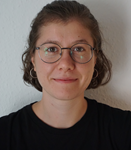 | |
Nevena | cf269@stud.uni-heidelberg.de |  |
Are you interested in the underlying mechanisms of neuropsychiatric diseases? Do you want to learn more about neurodegenerative diseases? Or do you want to gain research experience in basic science on molecular or behavioural neuroscience? Then you may want to consider applying to the major of Neuroscience in the master program Molecular Biosciences in Heidelberg!
What the neuroscience master at Heidelberg University offers:
- A flexible programme: Few basic course requirements, the rest is left up to the student to design
- Opportunities to work in the industry and/or abroad available
- Theoretical coursework presented through courses and seminars
- Practical experience through lab rotations and/or internships
- Opportunities to work on extensive Neuroscience topics in cutting-edge laboratories in the IZN
- Access to an extensive network of Neuroscience institutions worldwide
- A supportive major coordinator and major speaker cohort to answer questions or refer you to helpful resources
- Annual symposia or retreats organised by students for students to get in touch with each other and leading experts in science
What you should bring:
- Self-motivation
Since the student is in charge of organizing lab rotations independently, the pressure to do so must come from the student’s own will. This masters programme is very flexible, which has many benefits for students who seek this kind of freedom, but likely not suitable for someone who works best under structured guidance.
- Time management
If the semester is in full swing, it is common that a student’s day starts in the morning with lectures, continues in the day with lab work and ends with seminars in the evening. Thus, it is important for students to be able to schedule and use their time well. Due to the flexibility, students have the option to make some semesters more packed than others, but, again, planning in advance is key to timely success.
- Curious/investigative nature
These are traits all students in biosciences should have at this level of education. During this stage in your education, it is still possible for you to explore your interests to establish your passion in the field. Again, this chance is afforded to you through the flexibility of lab rotations. For example, maybe you choose to do one rotation with human subjects and can compare it to a lab rotation you did working with mouse models, or maybe you want to see whether you like using a certain method as an investigative tool, for example, choosing a lab which uses optogenetics.
FAQ:
- When should I plan to go abroad during the programme?
In the third semester, there is a break in required courses, so this could be the perfect time to plan a lab rotation or internship abroad. Since it is not a requirement of the major, it is up to the student to plan with the host institution where, when and for how long the visit will take place. There is no need to plan this in the first months of your degree. You will receive a lot of information notifying you of opportunities via email and presentations to present previous abroad experiences.
For more information, click here.
- What is a lab rotation?
A lab rotation is a time spent working in a lab under the supervision of a PI.
Lab rotations a minimum of 4 weeks, so that the students have time to get acquainted with the methods of the lab. The duration of lab rotations tend to be longer, but the length is discussed and decided between the supervisors and the students. In the neuroscience major, lab rotations can be done in any neuroscience-related lab. The lab does not necessarily need to be in Heidelberg.
In preparation for these, we would advise you to read papers published by PIs who are studying topics which interest you. You can learn so much about the scientific community here in Heidelberg by reading the research which is supported by our peers.
To check out possible labs in Heidelberg, click here.
- Is it necessary to know my specific interests in the field prior to starting my masters?
While you do not necessarily need to know your topic of passion in neuroscience prior to starting your master’s, it is helpful to have an idea what kind of neuroscience or lab techniques excite you most, so you can narrow your search for lab rotations. Your main goal as a masters student is to find a topic in the field which excites you. However, numerous labs with a huge variety of topics are associated with this masters program – thus, you definitely have the freedom to gain insight into topics you have never dealt with before. - What is important to know for the interview?
Interviewers will likely ask you about your bachelor’s thesis. If you can pitch an elevator speech about your thesis, that would be great! If your institution did not require you to do a bachelor’s thesis, be prepared to talk about your lab experiences if you have had any. It is a good idea to prepare general interview questions related to career goals and interests, too. Content questions are less likely to be asked; it is more important to capitalize on your interest in neuroscience. - Are there student organisations associated with the major?
Students are encouraged to get involved. Since the programme is individualised, extracurricular activities are the best way to connect with your fellow students. You can run for office as a major speaker, someone who works as a liaison between students from your year and the administration and plans events academic and social for the masters students. Beyond this, anyone in the Molecular Biosciences major can get involved in planning events. Each year, the students plan a symposium retreat, a graduation event and a welcoming event for new students, so there are many opportunities with which to get involved!
Link to the website.
- How much knowledge in neuroscience do I need before starting this program?
In the first semester you will learn about general topics of molecular bioscience e.g. genomics, proteomics, metabolomics, evolution, and cellular dynamics during the lecture series of Frontiers 1. Not only is the goal of this course to review these concepts to bring students from different academic backgrounds to similar levels of understanding, but you will also learn techniques on how to approach certain research questions. This lecture series is taken by the students of all majors simultaneously, hence you may get in touch with students from other majors. In the second half of the semester, you will be able to choose abbreviated introductory modules of the other majors in molecular biosciences as a way to expand your horizon and fuel interdisciplinary discussion. - What can I do with this master’s degree?
You will find that many students fall in love with Heidelberg and the opportunities available through the university. For this reason, many students seek a PhD position in Heidelberg following their master’s studies, e.g. via the graduate school.
For students who decide that academia is not the path for them, there is always the option to work in the industry. This path can be combined with the master’s programme via the ‘Working in Biosciences’ option. Here, students who find a place to intern at a company for a semester can let that count towards their degree. This is also a good option for students considering whether to enter the industry or stay in academia.
Contact
If you have further questions apart from the ones listed above, do not hesitate to contact the current neuroscience major speakers.
Angela Zhou | 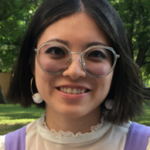 | |
Francesca Schmitt |  | |
Nadine Winkler |  | |
Samuel Marashli | 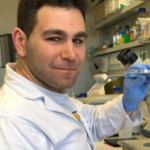 | |
Verena Bengelsdorff | 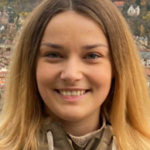 |
As the name “systems biology” already insinuates, this field of research aims at identifying the characteristics of biological systems and linking these to observable phenotypes. Put into simple terms, systems biology is all about seeing the big picture. As an example, instead of doing the “classical” biological approach and characterizing a single protein within a signaling pathway, the systems biological approach would be to look at the entire pathway, study its properties and look at the implications of these properties on the observed phenotype. In order to study systemic properties of biological systems, an interdisciplinary approach combining mathematics, computer science, biology and many other disciplines is required. As a prospective student, you might wonder, is systems biology the major for me? Well, if the systemic approach described, sounds like something you can get behind, sign up! However, you should be rather fond of math, statistical data analysis and programming. While previous programming experience is not required, it helps a lot. The system biology major is also rather small, creating an intimate learning environment that leaves room for individual development. People coming from other disciplines like mathematics and computer science, are also more than welcome, if they have an inherent interest in biology. Heidelberg might be a small city, but it is very international! If you are coming from abroad, do not worry, the university will take good care of you. We would be more than happy to have you!
FAQ
- How much programming experience is needed before starting the program?
It would definitely be useful if you tried it out so you know that this is something you like to do. However, specific skills are not required. - How much math should I know before starting the program?
It is completely fine if your bachelor’s program did not teach a lot of math! There is a voluntary course in the first semester for everyone who needs to freshen up their knowledge. So if you are worried that your math knowledge is not enough, rest assured that you will be fine. You should, however, like maths and be motivated to learn. - How many people are usually in one year?
This varies from year to year. Usually, the systems program is relatively small with about ten students. In 2020, the first year class consisted of 13 students while the second year class consisted of 6 students. This has the advantage that there is always a really good student to teacher ratio and that there is a lot of time during classes to have your individual questions answered. - What is important to know before the interview?
Don’t worry much about the interview, they simply want to get to know you a bit and make sure that systems biology is a good fit for you. So make sure that you can answer why you want to choose this master. - What is taught in this program?
You will primarily learn two things: How to generate high quality data in the lab and how to use that data to build models. The lab methods will primarily be quantitative methods (e.g. MS). Model building will primarily be taught using models based on differential equations (mechanistic models), a different approach than the more commonly taught techniques (e.g. regression). - Where I can do lab rotations?
There is a list provided by the program of labs where you can do your lab rotations. At least one of them should be from that least. But for the second one, you are free to choose any lab that belongs to the University or institutions such as the EMBL or the Max-Planck Institute. Even you could go abroad. But remember to get someone to supervise you!
Contact
Do you have more questions? Feel free to contact current students:
2nd Year | Carolina Elizondo | c.elizondo@stud.uni-heidelberg.de |  |
1st Year | Fabian Ormersbach | ormersbach@stud.uni-heidelberg.de |
|
Leonie Küchenhoff
| leonie.kuechenhoff@stud.uni-heidelberg.de | 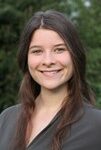 |